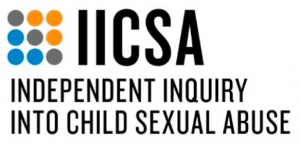Church issues background paper for parishes on the Independent Inquiry into Child Sexual Abuse (IICSA)
 IICSA, the Independent Inquiry into Child Sexual Abuse, was set up in 2015 because of serious concerns that some organisations in England and Wales had failed and were continuing to fail to protect children.
IICSA, the Independent Inquiry into Child Sexual Abuse, was set up in 2015 because of serious concerns that some organisations in England and Wales had failed and were continuing to fail to protect children.
This paper hopes to give some explanation of the inquiry as it relates to the church, and hopes to address some questions people might have.
Being independent means the Inquiry is not part of government and being statutory means it has the power to compel witnesses to give evidence. It will make practical recommendations to ensure better protection for children in the future.
How does the church fit in?
The Anglican Church in England and Wales is one of the 13 strands being investigated and its main focus will be the Church of England. The inquiry will assess the appropriateness of the church’s safeguarding and child protection policies and practice. As a case study it will consider the experience of Chichester Diocese, where there have been a number of allegations of sexual abuse, and numerous investigations and reviews. The first hearing will start on March 5.
The inquiry will also consider the case of Bishop Peter Ball at the end of July and an overall hearing into the church and safeguarding is expected in 2019.
Why is it considering the case of Bishop Peter Ball when there has already been an inquiry into his conduct?
Dame Moira Gibb was asked by theArchbishop of Canterbury to carry out an independent review into Ball after his conviction in 2015 for sexually abusing young men and boys. Her findings will be considered as that part of the inquiry. The focus will not be on what happened in this case but why, and whether it could happen again.
How does the inquiry work?
The Archbishops’ Council of the Church of England is a core participant in the inquiry.
There are other core participants, including survivors who have been abused by clergy and other church officers.
The National Safeguarding Team (NST) is leading, on behalf of the Church, a response to IICSA’s requests for information and witness statements. There have been four preliminary hearings for the church’s investigation; March and July 2016, October 2017 and finally in January 2018. These laid out the approach, lines of inquiry and final details for the first public hearing in March which will last for three weeks.
How has the church responded?
IICSA welcomed the invitation of the Archbishop of Canterbury for the inquiry to investigate, as a matter of priority, the sexual abuse of children within the church.
The NST, working closely with dioceses, cathedrals and religious communities, has been responding in a constructive and transparent way to IICSA’s request for information and statements and the Inquiry has acknowledged our cooperative approach. This has amounted to providing thousands of documents. IICSA will call a number of people to give evidence at the inquiry, the list will be published closer to the start of the Inquiry.
Will the inquiry affect my church?
On a day-to-day basis, safeguarding within our churches will continue to follow the policy and guidance approved by the House of Bishops so that our churches, services and activities are as safe places as possible. There will quite rightly be scrutiny and coverage of where we got it wrong and lessons we can learn and there are always improvements to be made. We will continue to apologise to any survivor of church-related abuse.
You can listen to interviews about safeguarding in the Church of England and how our structures work here: Overview of safeguarding in the Church of England.
If you are concerned that someone you know is at risk of, or is being abused, or presents a risk to others, please seek advice from your parish safeguarding officer or in an emergency your Diocesan Safeguarding Adviser. If necessary, report the matter to the local authority social care services or to the police without delay. Contact details for all of these people are available on our website here.
If you have general questions about the IICSA process and your parish that have not been answered here, please email: safeguarding@churchofengland.org.





